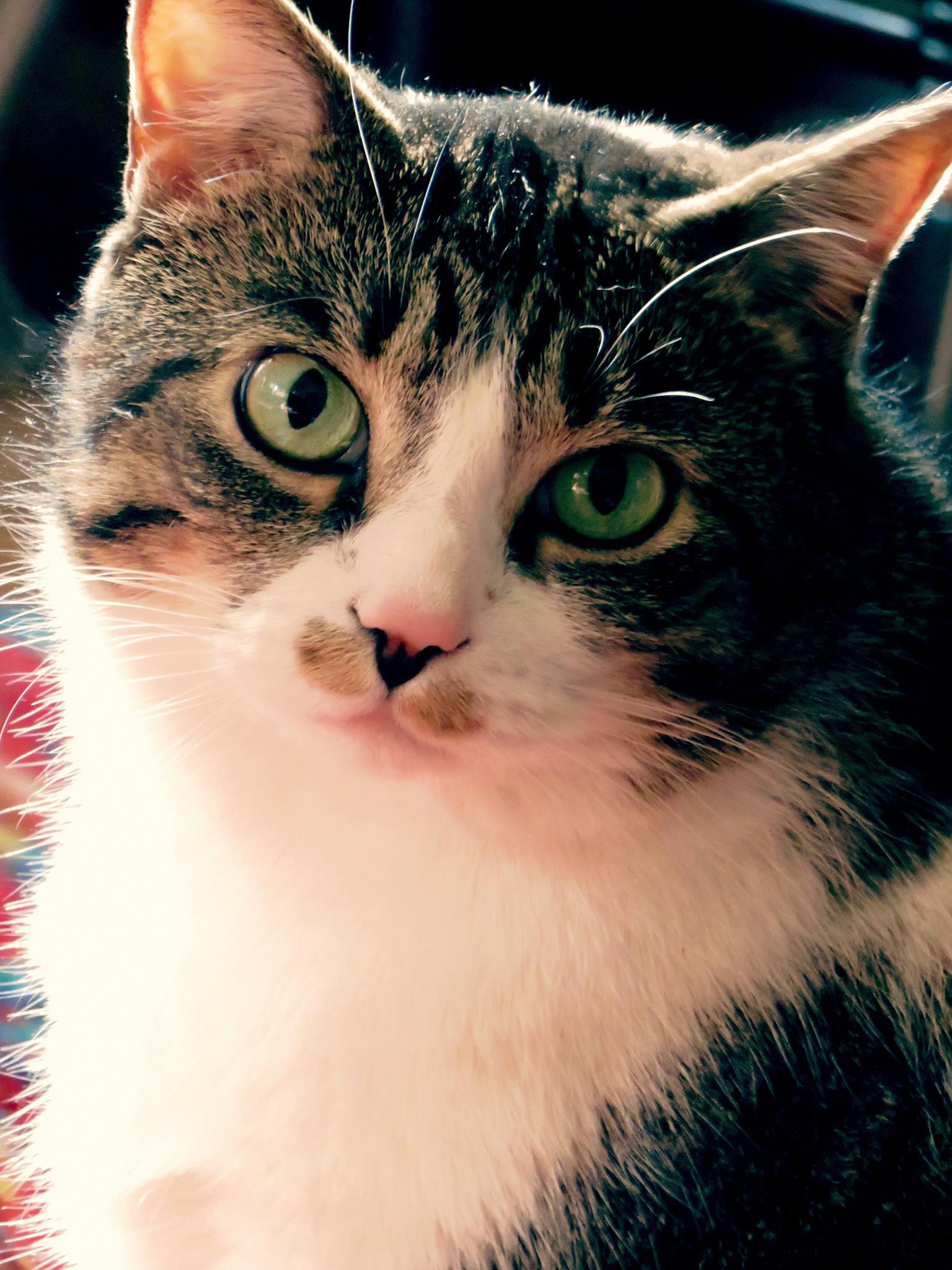
Her trench coat was spattered with new and old raindrops, and the cuffs of her jeans stained with mud when she entered the café. Looking around for a table, she noticed that even seats along the bar were full, and that someone had told the students they had to limit their use of space to accommodate the crowd. This was not unusual for a rainy day, and she was about to order her drink to go when a man in a fisherman’s sweater and corduroy pants beckoned her over.
“Join me?” he offered, rearranging the plate, cup, and silverware in front of him, and closing the notebook he’d been staring at.
She wove her away between people and chairs, unfastened her coat, and sat down. “Thanks for the rescue,” she said. “I didn’t really want to take my order to go.” She paused then, looking down at the table-top, then back up at her new companion. “I have to confess though: I know that I know you; I just can’t quite name you.”
He laughed, and she noticed that he had dimples in cheeks. “Sarah! Honestly! I’m David,” he said. “Your bike messenger.”
“Of course you are!” she gushed, embarrassed. “I don’t think I’ve ever seen you in clothes before.”
“Do I want to know what that meant?” the server teased by way of a greeting, arriving at their table. “Your usual macchiato today, Sar?”
Sarah laughed. “I meant real clothes. Street clothes,” she tried to explain, both to David and to the amused server. “No… it’s so wet. A pot of tea, please. That tarragon mint blend.”
“Sure thing,” the server said, “For one or…” He let the question trail off into innuendo.
“Make it for two,” David put in on cue. “And I’m done with this cup.” He gestured to the half-empty espresso cup before him. “It’s cold now, anyway.”
“Back in a jiff,” the server said, turning toward the kitchen.
“I can’t believe you lingered here long enough to let espresso go cold, as busy as it is in here today,” Sarah ventured once they were alone again.
“I was working on a poem,” David confessed.
“You’re a poet? Are you published? Can I read your stuff?”
“I am, when I’m not wearing bike pants and delivering documents around town,” David answered, taking each of her questions in order. “I’ve published a couple pieces here and there,” he continued. “And as to reading it… the stuff I’m working on right now needs to steep a bit.”
“Poems steep?”
“Just like tea,” David said.
His smile, Sarah observed, was a gentle one, and his blue eyes danced with merriment – no – enthusiasm – when he spoke about his art.
“So, why are you a bike messenger, then?” Sarah asked, and then immediately apologized, “Oh, wait. Was that too nosey? I’m sorry.”
He shook his head. “It’s a fair question.” He took a minute to compose his answer. “I like to be outside. I like to meet different people. I hate to exercise, but this way I get paid to do something physical… and the whole time, I’m writing poetry in the back of my head.”
“But you do put it on paper, right?”
“Eventually. When it’s ready.”
“I always wanted to write,” Sarah confessed. “I got pulled into the family brokerage before I even finished college. Now, Mom’s name is on our letterhead, but I’m running most of the day-to-day.”
“You seem successful.”
“How can you tell?”
“You’ve upgraded to larger suites in the same building twice in two years,” he began, ticking off points on his fingers. “The mood in your office is usually positive – even when there’s a problem that comes up, you and your staff are always pretty happy.”
“And that tells you we’re successful?”
“That and the fact that you’ve nearly quadrupled the volume that goes through our service.”
They laughed at that together, their voices mingling like tea and lemon – not matching but complimenting each other.
The server brought their tea at that moment. “Sorry to take so long,” he said.
“It’s not a problem,” Sarah said. “For me at least. David, do you have to be anywhere?”
“Free afternoon,” he said. He reached for the pot, one of those round glass ones with the infuser basket, but the server stopped him.
“It needs to steep, still,” he said. He left, then returned with cups and saucers, napkins, spoons, honey, lemon, and a plate of crescent-shaped cookies. “Have some lemon moon cookies,” he said. “On the house.”
“Thank you,” David and Sarah said at the same time.
They waited in silence to be left alone again, for the tea to steep, to see who would speak next. Finally, Sarah decided the brew was ready, and she poured cups for each of them. “It’s hot,” she warned automatically.
“So are you – oh, God, was that my out-loud voice?” David laughed. Then he shrugged, “Well, you are.”
“I’m not sure what to say to that,” Sarah responded, stirring honey into her tea. “Thanks, I guess.” She watched his face for a long while, then nodded once, and asked, “Would you like to have tea again sometime… maybe on purpose?”
David squeezed lemon into his cup of tea, then dropped the spent rind on his saucer. “I was about to invite you to the pub down the street.”
“Now?” she asked.
“Saturday. Seven-thirty. There’s a poetry slam. I’m reading.”
“I’d like that,” she said.
She sat with him for another thirty or forty minutes while they sipped their tea and ate the cookies (“Oh, God, these are heaven!!”) By the time they left, the crowd had dispersed and the rain had stopped.
The next three days flew by, but on Saturday she met David at the pub, and he introduced her to the owner and some of the regulars. The event wasn’t truly a slam, in the pop-culture sense of the word, just a night of original poetry from local writers.
David was last. When he took the stage he looked right at Sarah and gave her a cocky wink. “This one is brand new,” he told the people in the audience. “It’s called ‘Steeping’.”
Image copyright Olu Eletu via UnSplash, used with permission.
About the author: Melissa A. Bartell
 Melissa is a writer, voice actor, podcaster, itinerant musician, voracious reader, and collector of hats and rescue dogs. She is the author of The Bathtub Mermaid: Tales from the Holiday Tub. You can learn more about her on her blog, or connect with her on on Facebook, Instagram, or Twitter.
Melissa is a writer, voice actor, podcaster, itinerant musician, voracious reader, and collector of hats and rescue dogs. She is the author of The Bathtub Mermaid: Tales from the Holiday Tub. You can learn more about her on her blog, or connect with her on on Facebook, Instagram, or Twitter.

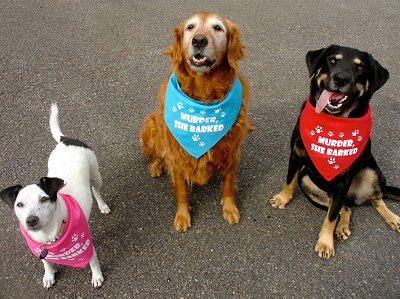
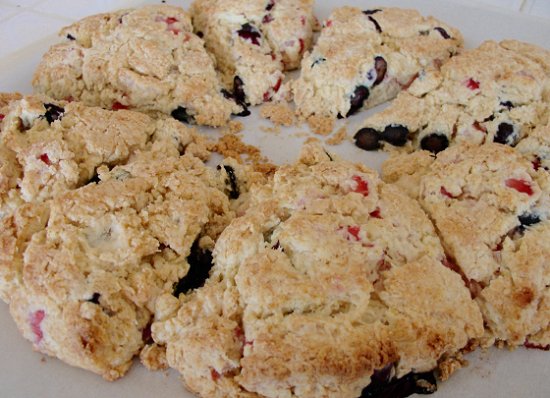 Dear Diary,
Dear Diary,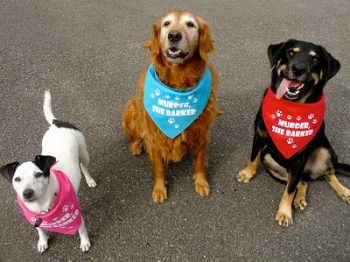 fingers. I fear that he’s onto me. Must eat treats in the bathroom. Who am I kidding? He follows me there, too.
fingers. I fear that he’s onto me. Must eat treats in the bathroom. Who am I kidding? He follows me there, too.
 New York Times Bestselling author
New York Times Bestselling author 
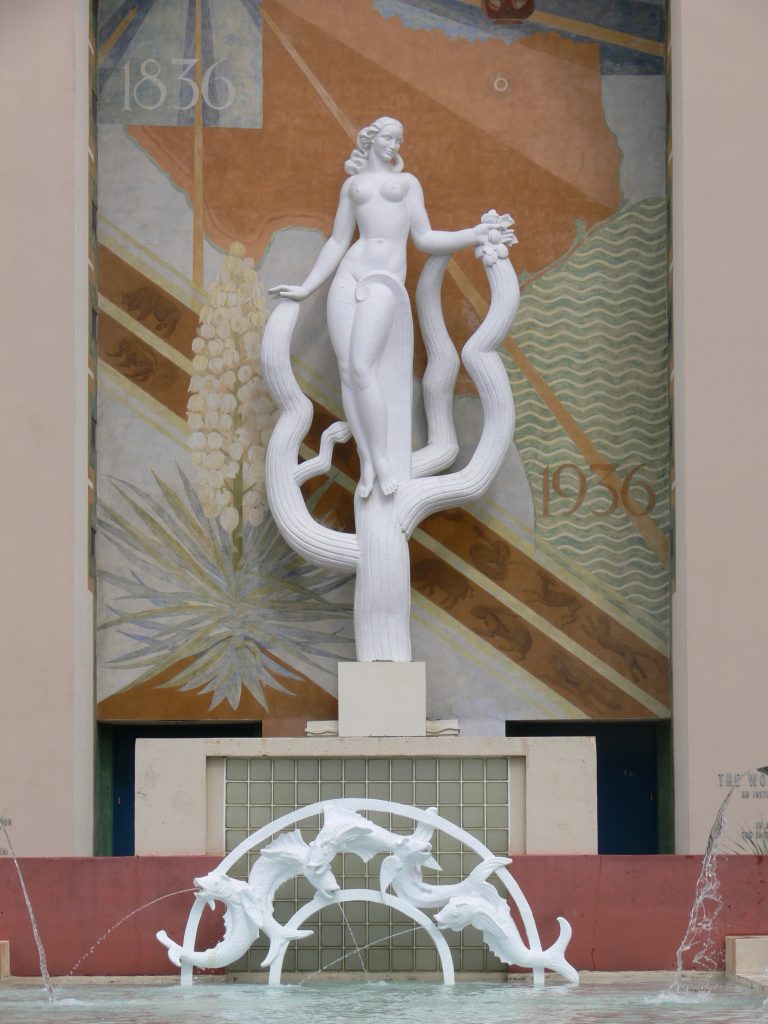 what used to be the Woman’s Museum at Fair Park in Dallas.
what used to be the Woman’s Museum at Fair Park in Dallas.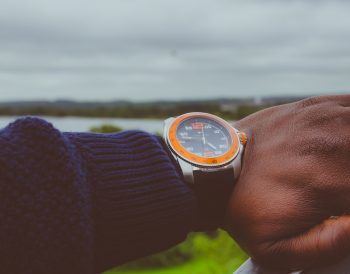
 food and ignore me. All my makeup is gone and I look like a swollen turnip.
food and ignore me. All my makeup is gone and I look like a swollen turnip.
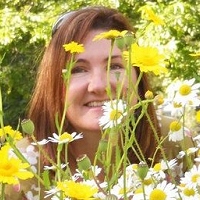 Jeanette McGurk is a Graphic Designer who entered the world of writing through advertising. She discovered writing a lot of truth with a little fluff is a lot more fun than the other way round. Now that she is no longer spending time making air conditioners, tile floors, IT and Botox sound sexy, she writes about the unglamorous yet wonderful moments of life for people like herself; in other words, anyone looking for interesting ways to put off cleaning and doing laundry.
Jeanette McGurk is a Graphic Designer who entered the world of writing through advertising. She discovered writing a lot of truth with a little fluff is a lot more fun than the other way round. Now that she is no longer spending time making air conditioners, tile floors, IT and Botox sound sexy, she writes about the unglamorous yet wonderful moments of life for people like herself; in other words, anyone looking for interesting ways to put off cleaning and doing laundry.

 The idea for Piano Girl: A Memoir came to me after decades of working as a solo pianist in roadside dives, plush Manhattan hotels, and European castles. Playing pleasant background music for listeners and non-listeners alike, I kept my sanity by monitoring the human comedies, tragedies, and mundane miracles drifting past the Steinway. After thirty years of scribbling notes on cocktail napkins and in journals, I began writing my book.
The idea for Piano Girl: A Memoir came to me after decades of working as a solo pianist in roadside dives, plush Manhattan hotels, and European castles. Playing pleasant background music for listeners and non-listeners alike, I kept my sanity by monitoring the human comedies, tragedies, and mundane miracles drifting past the Steinway. After thirty years of scribbling notes on cocktail napkins and in journals, I began writing my book. Robin Meloy Goldsby is the author of
Robin Meloy Goldsby is the author of 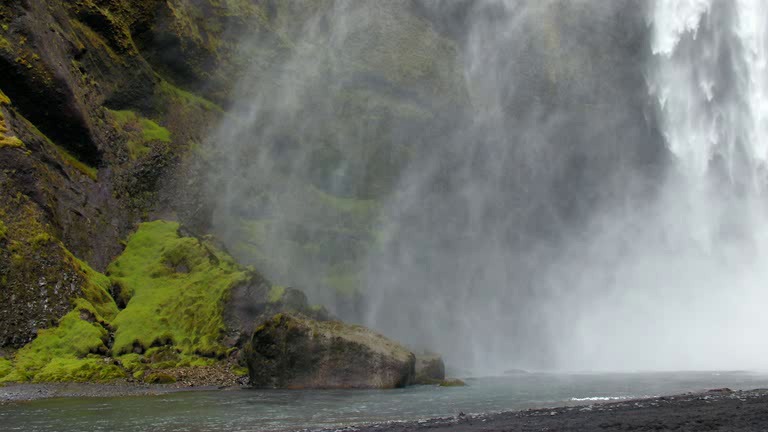
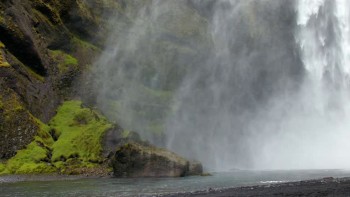
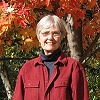 Patricia Wellingham-Jones is a widely published former psychology researcher and writer/editor. She has a special interest in healing writing, with poems recently in The Widow’s Handbook (Kent State University Press). Chapbooks include Don’t Turn Away: poems about breast cancer, End-Cycle: poems about caregiving, Apple Blossoms at Eye Level, Voices on the Land and Hormone Stew.
Patricia Wellingham-Jones is a widely published former psychology researcher and writer/editor. She has a special interest in healing writing, with poems recently in The Widow’s Handbook (Kent State University Press). Chapbooks include Don’t Turn Away: poems about breast cancer, End-Cycle: poems about caregiving, Apple Blossoms at Eye Level, Voices on the Land and Hormone Stew.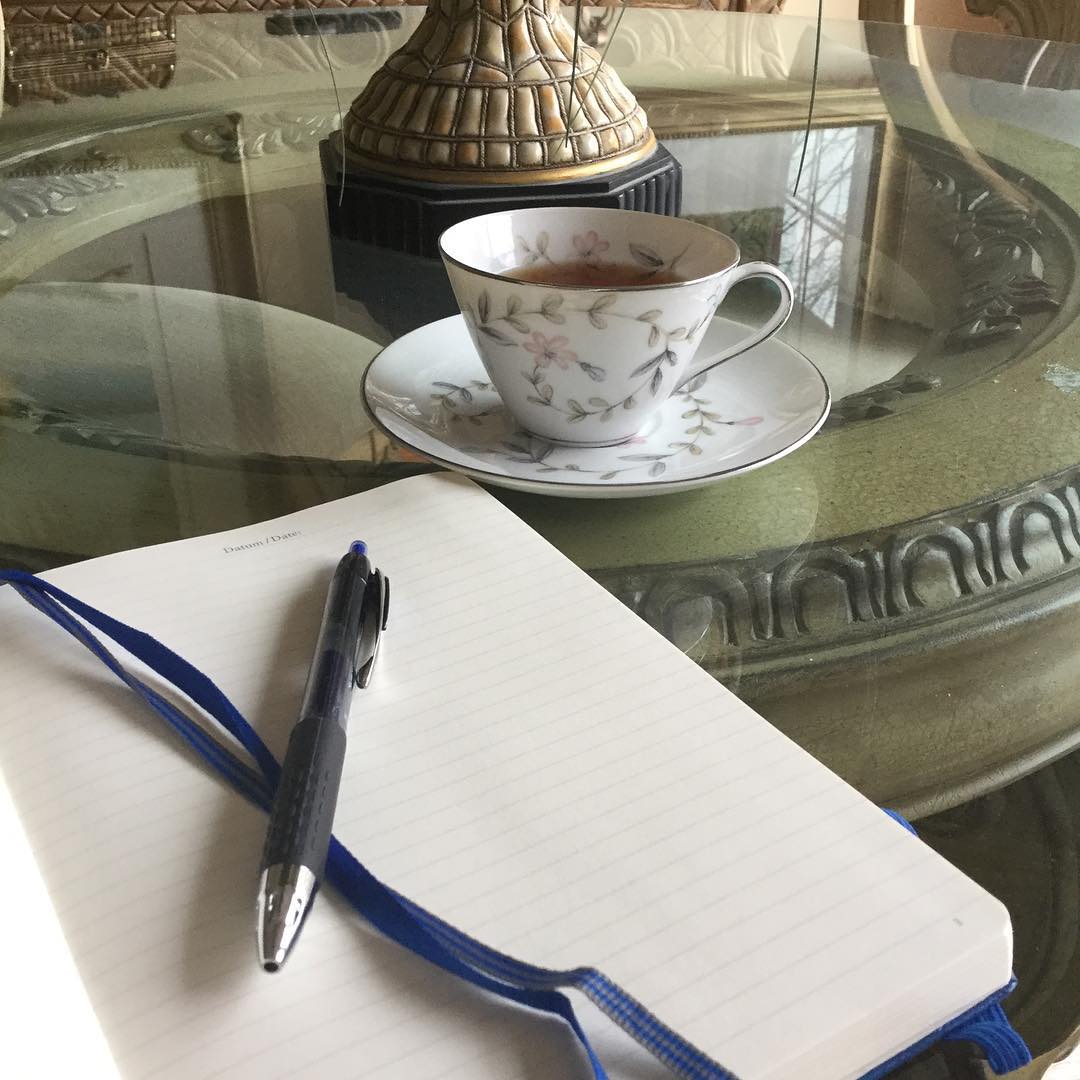
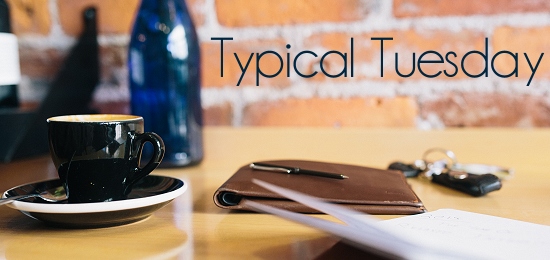
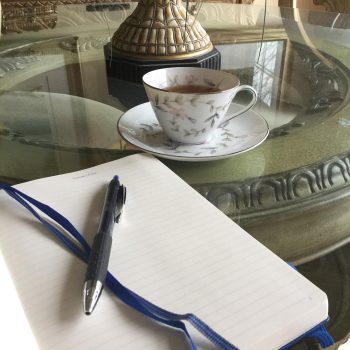 An hour later – with coffee, reading, and journal writing under my belt – I’m ready for the day. During breakfast (vanilla yogurt with sliced banana and coconut granola) I check in on social media, trying to limit my time and avoid getting sucked down the many rabbit holes of posts, links, and comments.
An hour later – with coffee, reading, and journal writing under my belt – I’m ready for the day. During breakfast (vanilla yogurt with sliced banana and coconut granola) I check in on social media, trying to limit my time and avoid getting sucked down the many rabbit holes of posts, links, and comments.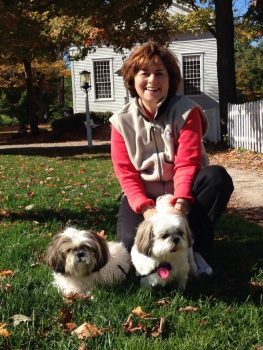
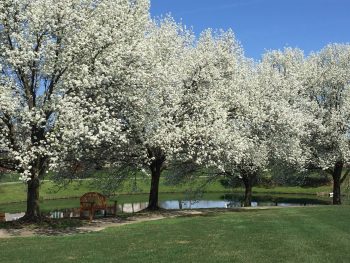 Now, in these hours between 11 and 4, I’m learning to simply BE. It’s a gift – this ability to wake up each morning and pick and choose what I’ll do with the day, like items off the menu in a Chinese restaurant. One day I’ll choose an hour of reading, lunch with a friend, writing time in the afternoon, some work in the garden. Another it might be a bike ride into town, a stop at the library, and some piano practice before dinner.
Now, in these hours between 11 and 4, I’m learning to simply BE. It’s a gift – this ability to wake up each morning and pick and choose what I’ll do with the day, like items off the menu in a Chinese restaurant. One day I’ll choose an hour of reading, lunch with a friend, writing time in the afternoon, some work in the garden. Another it might be a bike ride into town, a stop at the library, and some piano practice before dinner. Becca Rowan lives in Northville, Michigan with her husband and their two dogs. She is the author of
Becca Rowan lives in Northville, Michigan with her husband and their two dogs. She is the author of 


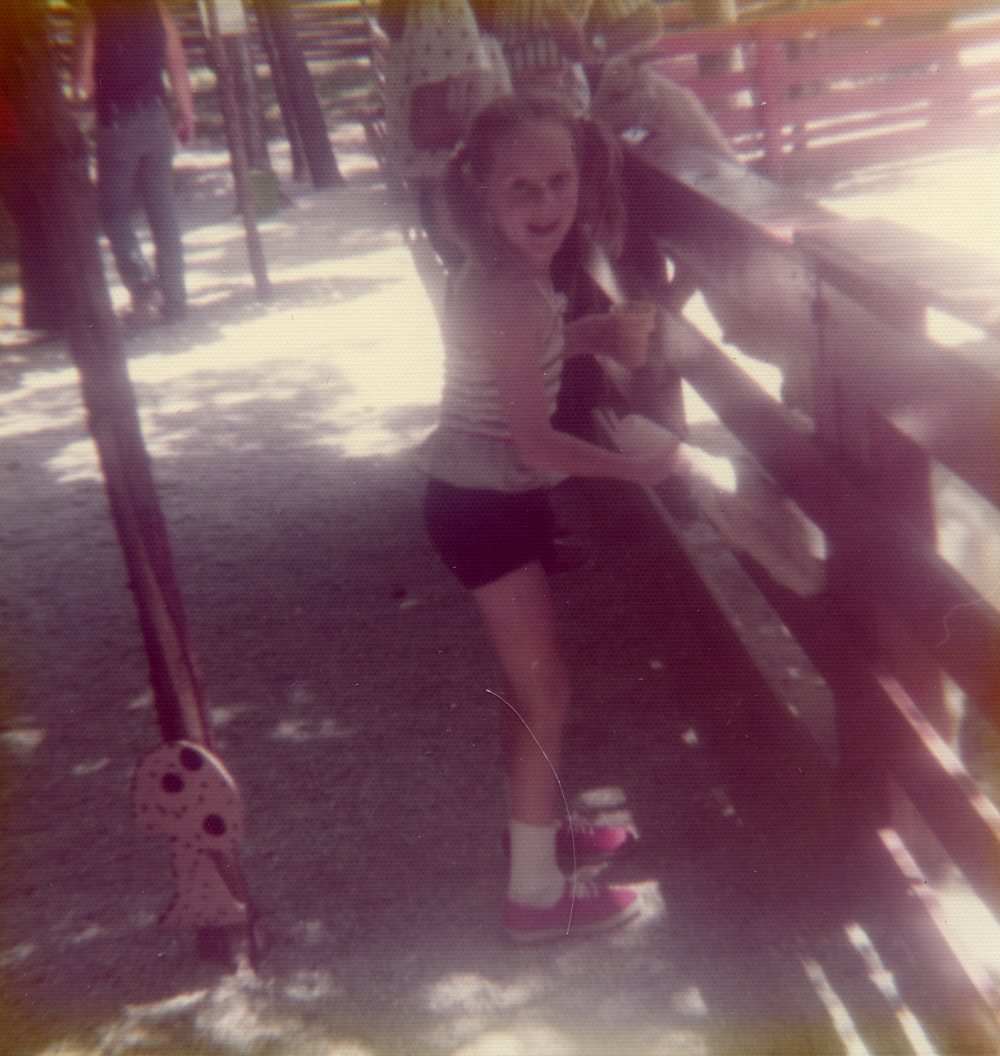
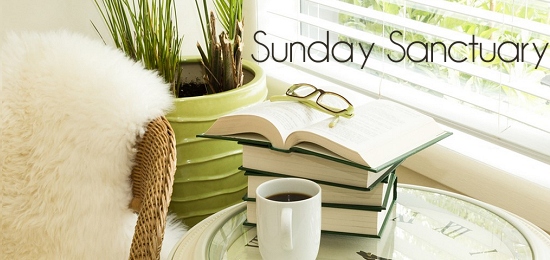
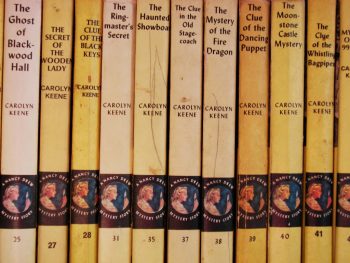 covered tales that I knew I would suggest to any of my preteen visitors needing books to satisfy. And though I had outgrown them, the picture books were there, too.
covered tales that I knew I would suggest to any of my preteen visitors needing books to satisfy. And though I had outgrown them, the picture books were there, too.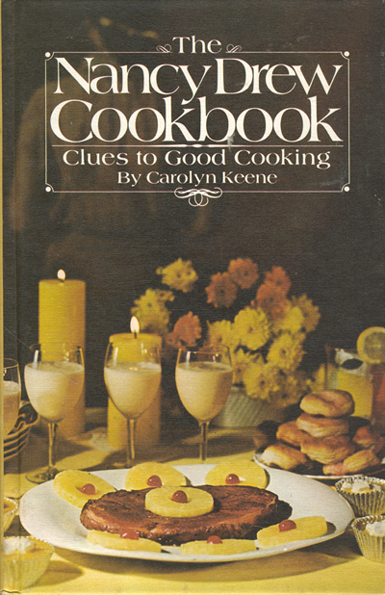 While awaiting visitors to my library, I perused my Nancy Drew Cookbook and imagined the meals I would create. I marked my favorite recipes with little slips of paper, imagining how wonderful a meal – with candles (and wine) would be!
While awaiting visitors to my library, I perused my Nancy Drew Cookbook and imagined the meals I would create. I marked my favorite recipes with little slips of paper, imagining how wonderful a meal – with candles (and wine) would be! I went to college and got a degree in journalism, spending several years working in broadcast TV, including a stint at ABC News.
I went to college and got a degree in journalism, spending several years working in broadcast TV, including a stint at ABC News.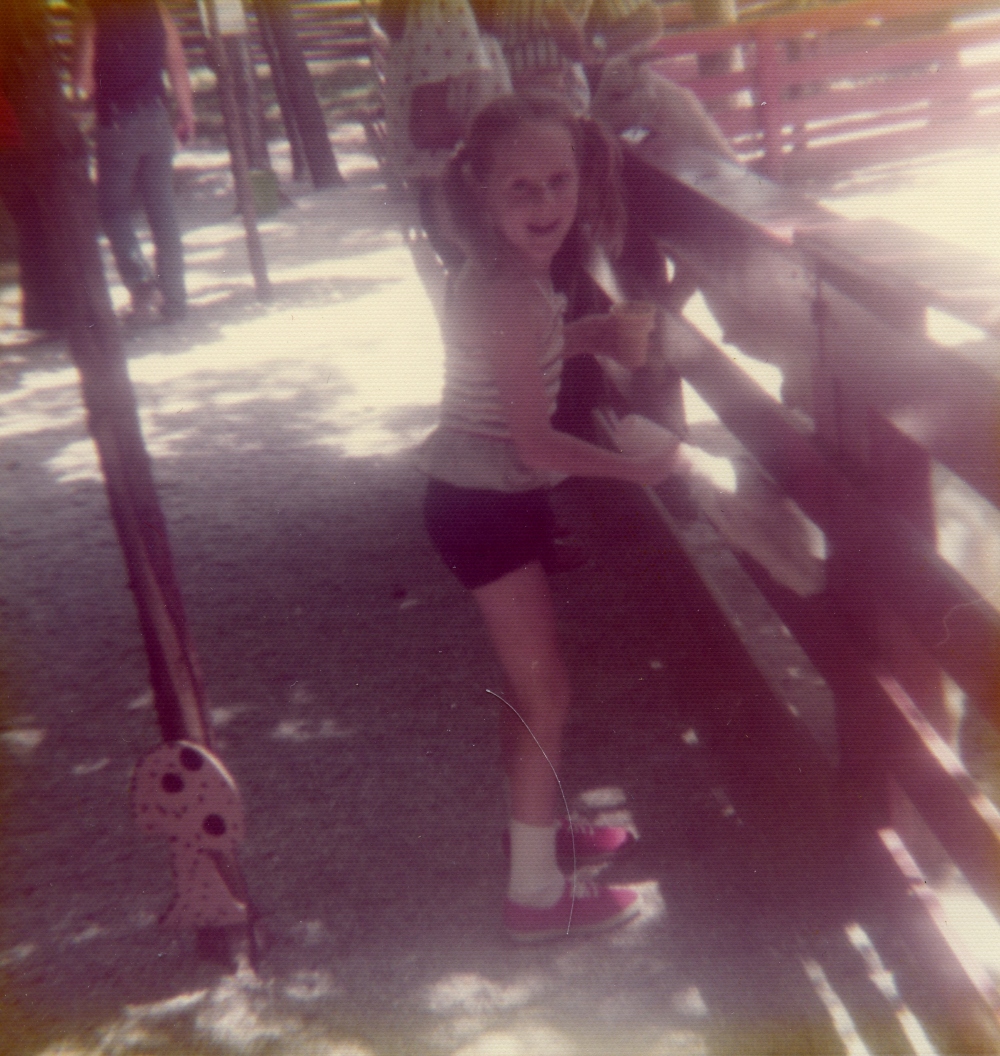 Little girls don’t dream about traffic jams or failed marriages or careers that aren’t quite fulfilling.
Little girls don’t dream about traffic jams or failed marriages or careers that aren’t quite fulfilling.


